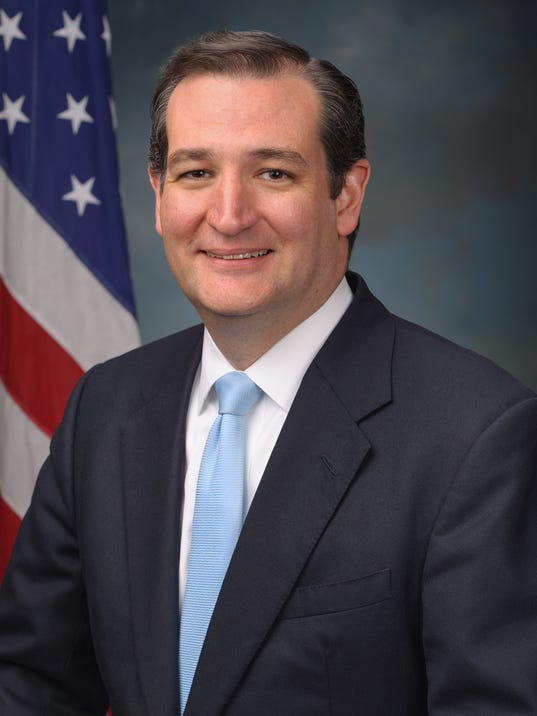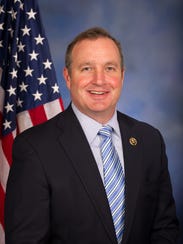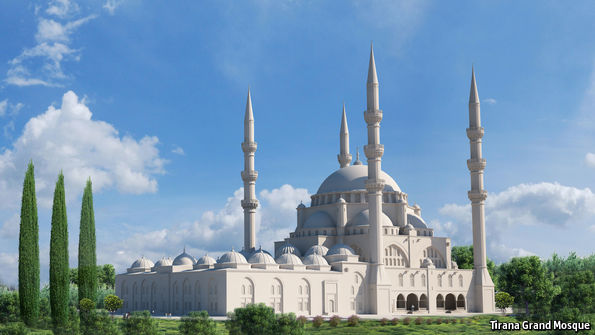-
Published on Friday, 22 January 2016
-
Category: Articles and Commentary
-
Written by Epidamn Zeqo

The
four main symptoms of the economic crisis that has gripped the country
since 2011 are: extremely difficult to access credit, falling aggregate
demand, high unemployment and low FDI levels. Following the external
shocks from the Great Recession and sovereign debt crises in Greece and
Italy (Albania’s largest trading partners and financiers), the economic
growth in Albania has been insignificant – straddling the 2 per cent of
the GDP mark—relative to the economy’s size.
The immediate results have been very
painful: FDI dried up, remittances from the Albanian diaspora stopped,
and the housing market "bubble" burst; the main drivers of economic
growth since 2000 (until 2010 the average growth was 6 per cent).
Consequently, bad debt levels rose to 25 per cent of total loans. There
was a strong slowdown in the flow of transactions, a trend that
continues and intensifies. As a result, there are strong deflationary
pressures, which will intensify because of the lack of new jobs and
credit. In 2015 alone, new credit for businesess fell by more than 13
per cent compared to 2014.
Albania’s economy remains Europe’s
poorest with the lowest GDP per capita at around one-third of the EU28
average. Isn’t this a crisis in intself? Tragically, the economic
outlook for growth remains bleak; in its latest report, the World Bank
forecasted a 3.5 per cent GDP growth until 2018. The country’s
‘catch-up’ growth potential is sadly not being realised. The growth is
mainly driven by a pitoval European energy project – the Trans Adriatic
gas pipeline, which luckily passes through Albania too.
I have previously described the Albanian
economy as a "zombie" which was left to "starve" by the former Prime
Minister Berisha’s coalition government with Ilir Meta. Berisha’s
government inaction and bad governance caused the four main symptoms’
deterioration. Attempts were made to improve Doing Business indicators,
and are currently being made by Prime Minister Edi Rama’s and Meta’s new
coalition government, yet the economy’s attractiveness remains
staunchly low. Albania is the only country in the region where the
business environment has actually worsened since 2011.
The economic situation PM Rama inherited
in 2013 was indeed dire. He described the Albanian economy as plagued
with "cancers" in every sector, and promptly began "operating" all these
"cancers" simultaneously; sometimes he cut deep, like in the energy
sector, and at other times only scratched the surface, like the banking
sector. Yet the economy continues to underperform and I would argue this
is also due to the shock it has endured under his leadership.
The approach PM Rama has chosen is a
severe one: ‘shock’ therapy fiscal stabilisation and fast, deep
structural reforms. And one can understand the temptation to blindly
follow this approach, when it is recommended by international financial
institutions such as the IMF and World Bank. But what are the transitory
costs of these structural reforms in the "zombie" economy’s context?
I would argue that they are proving
adverse to economic recovery and could potentially cause a transitory
recession because structural reforms are subject to a
‘time-inconsistency’ problem. The economy and its agents need to see
quick improvements and have an optimistic view of the future, before
agreeing to costly structural reforms. He is demanding that Albanians
accept losses in the short-term for long-term promises of benefits, a
situation many cannot afford.
To return confidence in the economy and
high economic growth, we first need to address our issues of tight
credit, low aggregate demand and high unemployment. Only once we tackle
these will attractiveness of the economy meliorate – leading to higher
levels of FDI. The moment when the economy is revived would be the best
time to gradually implement structural reforms.
Politics
The Alliance for a European Albania was
voted by an overwhelming majority in the 2013 general election for the
economy’s and state’s "rebirth", to strengthen the rule of law, and to
improve Albanian citizens’ living standards. The manifesto for the
"rebirth" of Albania was a social democractic program but clearly an
unrealisitic one, as ultimately it failed to understand the power of
monetary policy and finance. Where are we today? Promises for free
healthcare services have been met with increased privatisation, and
there’s little sign of the 300,000 new jobs outlined.
What’s more, since PM Rama came to power
he has borrowed from external financial markets circa 1.2 billion US
dollars, but little of this money has trickled down to the real economy.
The government has spent its budgets repaying companies for
infrastructure projects commissioned by Berisha; energy reform –
including investment in the distribution grid; urban regeneration
projects; and good governance reforms. Yet there has not been any new
major transport infrastructure project: whilst there is a vision for an
Adriatic highway linking Croatia and Albania, and a new international
airport in the south of the country (near the beautiful city of Saranda)
exactly how these will be financed remains unclear. Consequently,
Albania remains the most expensive European destination to travel to,
and affects its ability to develop a strong tourism sector as
neighbouring countries have done.
Now the political focus is on the rule
of law reform – a key condition for the commencement of accession
negotiation with the EU, and for the sustainable development of the
country. Yet nothing is being done to increase aggregate demand or ease
access to credit. How can this be when the consumption level fell by
around 3 per cent in 2015 compared to 2014?
Only after a year in office is the
Governor of the Albanian Central Bank (ACB), Genti Sejko, reportedly
evaluating options other than lowering interest rates for a 15th time
since 2013. The absence of a strategy to use monetary policy to revive
the ‘zombie’ economy is an irresponsible and tragic mistake. Instead,
the ACB is busy trying to squash scandals: Ardian Fullani, the
long-serving governor, was arrested on September 5th 2014, after an ACB
employee confessed to stealing 5 million euros from the vault where he
worked (he was recently acquitted by the Appeal Court).
Meanwhile, PM Rama is quickly
implementing structural reforms, but without substantial public
investments or compensations. This has already undermined the economic
recovery from external shocks; hence, his government’s legitimacy. The
15 per cent progressive tax system implemented immediately after he came
to power (replacing a competitive 10 per cent flat tax) was done too
fast. As a result, tax and customs revenues are experiencing extremely
high budget deficits of around 10 per cent. This directly affects his
government’s ability to service the alarmingly high public debt (73 per
cent of the GDP).
In September 2015 PM Rama, pressured by
the IMF to meet budget targets, declared the beginning of a national
action to formalise the economy. This policy makes sense when you
consider that the "grey" economy in Albania could actually account for
as much as 20 per cent of the whole economy. However, the speed at which
this formalisation is taking place is resulting in bankruptcies of the
very small businesses that constitute a vital part of Albania’s economy.
The dichotomy between the state and the
economy is a showdown in extremis: therefore, the economy seems to be
reacting, for worse not for better, to Rama’s actions. The desperation
of situation is reflected by the fact that in 2015 alone, more than
52,000 Albanians (not only from Albania though) applied as asylum
seekers in Germany. The necessity to seek opportunities elsewhere has
returned; further contributing to the ‘brain-drain’ problem.
Power of finance
Macroeconomic stability could be better
achieved, if structural reforms were implemented much more gradually.
For a successful gradual approach we would first need to boost the
economy by fiscal and monetary means to return 6 per cent GDP growth as
early as this year. Credit-easing schemes would be the best instrument
to achieve this, and a new interventionist mandate for the ACB is
needed.Only once the economy has been revived should deep reforms be
implemented. The need to stimulate demand and credit supply provokes a
debate that goes beyond economic technicalities to questions about the
government’s overarching responsibilities. But the justification for
such a policy must transcend economic logic if it is to win political
support.
There are many proposed methods that
could improve the trade-off between inflation and production in monetary
policy. A greater role for the government and ACB requires an
overriding mission like a stimulus package to return 6 per cent GDP
growth in the short and medium term. The ACB urgently needs a new
mandate to replace the defunct conservative objective of inflation, with
a more developmental objective of growth or employment. The ACB should
allow a lower level of commitment to inflation and produce a monetary
stimulus to restore confidence in the economy and stimulate internal
consumption and investment.
Quantitative easing is not appropriate
because all commercial banks operating in the country are well
capitalised. Instead the ACB needs to act as the guarantor for credit
easing schemes and other initiatives to boost aggregate demand and
investment. This is because there is little room in Albania for a fiscal
stimulus (that chance was missed in 2013). In the end of January, the
government signed a deal with the European Bank for Recostruction and
Development (EBRD) for a credit easing scheme for the agro-business.
EBRD is the guarantor, so the risk is shared. Although this scheme is
welcomed (albeit is long-awaited) the problem is that it’s a one-off and
not part of a national strategy to make credit easier to access and
cheaper.
The government, in partnership with the
ACB and commercial banks, must devise credit-easing schemes targeted to
help, for instance, young couples buy their first-time home (a
demographic that could actually revive the housing market). Because of
Albania’s development level, it is also important that all financial
actors work to expand micro-financing in urban and rural areas. This
would support structural adjustments aimed at developing of the
workforce in accordance with modern technology’s specific requirements -
a way out of youth unemployment. They should consider the creation of a
new public-private bank for entrepreneurs, and small to medium
enterprises. Also, crowdfunding initiatives should be encouraged.
I am pessimistic that these ideas will
be adopted by the coalition government, because after more than two
years in power, it is clear PM Rama’s priority is not to boost the
economy and household’s budgets but to strengthen the state. He believes
this will stimulate the economy, which sadly has been shown to be
untrue, at least in the short and medium term. Moreover, the IMF and
World Bank continue to support the approach they advised to PM Rama.
The IMF has played an important role in
post-communist Albania, but history shows there have been both positive
and negative results. It suggested "shock" therapy liberalisation,
stabilisation, and privatisation in 1993, which created the breeding
ground for ”pyramidal” Ponzi schemes whose collapse led to civil anarchy
in 1997. The IMF suggested ”shock” therapy monetary stabilisation in
1998 and enshrined price stability as the ACB’s only goal. But the
Albanian economy is a product of our history – one that is defined by
isolation, continued periods of transition and tribal politics – and as
such is best understood by educated Albanians themselves.Although,
macro-economic stability is a necessity, it can be better achieved if
the strategy is not austerity, but growth.
The main reason why there have not been
fiscal and monetary stimuli in Albania since 2011 (and why "shock"
therapy fiscal consolidation is being enforced) is because there is no
audience cost for policy in the debate in Albania. Public policy remains
the domain of few. The media and education is corrupt and
unprofessional; hence cannot "educate" the population. Therefore, PM
Rama never faced questions over whether to implement austerity and
costly structural reforms quickly or gradually.
The major political parties should reach
a consensus for an interventionist mandate for the Central Bank, and
the other ideas outlined above to return 6 per cent GDP growth in the
short and medium term.
Epidamn Zeqo holds an
MSc in European Political Economy from the London School of Economics
and a dual MA in International Relations and Modern History from the
University of St. Andrews. A native of Albania, he lives and works in
London.














![[linked image]](http://cdncms.todayszaman.com/todayszaman/2014/03/14/erdogan3_newsdetail.jpg)
 The
four main symptoms of the economic crisis that has gripped the country
since 2011 are: extremely difficult to access credit, falling aggregate
demand, high unemployment and low FDI levels. Following the external
shocks from the Great Recession and sovereign debt crises in Greece and
Italy (Albania’s largest trading partners and financiers), the economic
growth in Albania has been insignificant – straddling the 2 per cent of
the GDP mark—relative to the economy’s size.
The
four main symptoms of the economic crisis that has gripped the country
since 2011 are: extremely difficult to access credit, falling aggregate
demand, high unemployment and low FDI levels. Following the external
shocks from the Great Recession and sovereign debt crises in Greece and
Italy (Albania’s largest trading partners and financiers), the economic
growth in Albania has been insignificant – straddling the 2 per cent of
the GDP mark—relative to the economy’s size.







